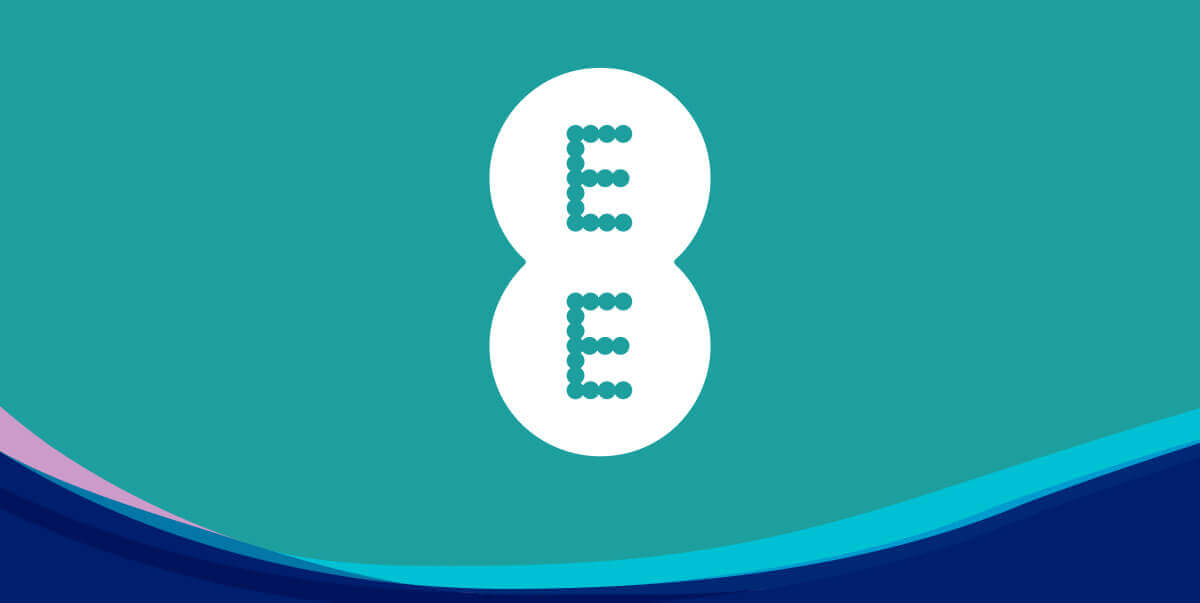EE launches fastest widely available broadband in the UK at 1.6Gbps
Dan Howdle | March 4th, 2024

If you're here to read this, you've probably seen claims on the TV and radio that EE Broadband now has the 'fastest widely available broadband in the UK', advertising a headline speed of 1.6Gbps (or 1,600Mbps in old money). But how likely is it you'll actually be able to get that speed. Is it any good, and at the end of the day, if you are lucky enough to get it, is it ultimately worth the money? Cable.co.uk investigates.
EE Broadband 'Busiest Home Bundle': 1.6Gbps, £69.99 per month
EE Broadband's 1.6Gbps home broadband comes under that slightly confusing title 'Busiest Home Bundle'. Confusing because it's not really a bundle. For years, the term bundle has referred exclusively to broadband deals that include TV, a mobile SIM, or all three as part of your broadband package. This is no such thing. It's just broadband.

-
1.6Gb average speed
- Unlimited monthly downloads
- £31.99 one-off cost
- 24 month contract
- No phone line
Features
- 1.3Gbps Speed Guarantee: Yes, not 1.6Gbps! That's not to say you won't get the full speed, but that you're guaranteed at least 1.3Gbps
- 115Mbps upload speed: This is, in our opinion, very low for a connection this fast. Won't be an issue for most users, but BT's Full Fibre 900 (900Mbps) has 110Mbps, so this is not scaling up properly
- Exclusive Mobile Benefits: There are benefits both ways between having an EE mobile contract and an EE Broadband contract together
- Smart Hub Plus router: The Smart Hub Plus is by far the most capable router offered with Full Fibre. At 1.6Gbps, it has to be. We'll cover the specs and what they mean a little further down
- Smart WiFi Plus: Included is up to two additional Wi-Fi extenders, and if you still can't get reliable wifi in every room of your home, EE will credit you £100
- WiFi Enhancer: Provides the ability to prioritise traffic/bandwidth by type, so for example you could prioritise work-related traffic over gaming related traffic. Cool to have, but to our mind completely unnecessary on a connection this fast. Nothing you're doing on it will ever touch the sides, so to speak
How widely available is it?
We've done a whole load of postcode testing with EE's own postcode checker tool to ensure we reach the correct conclusion on this. As far as we can tell at this time, EE's 1.6Gbps broadband is available to any home that can currently get Full Fibre on the Openreach network. That's around a third of UK homes at the time of writing, or to put it another ay, you have a one in three chance of being able to get it.
Do I need it?
No. There. That's an unequivocal answer. No one (or very close to no one) needs broadband this fast. Do you want it? Well, that's a different questions, and one only you can answer. Let's take a look at some common usage examples to get a clear idea of why, broadly, no one needs broadband this fast:
| Activity | Speed required | On EE Broadband 1.6Gbps Full Fibre |
|---|---|---|
| Browsing the internet | 2-10mbps | 160 people could be happily browsing the internet at the same time |
| Watching Netflix or Disney+ in 4K | 15-20Mbps | 80 people could be watching a movie in 4K, on 80 TVs at the same time |
| Playing a competitive online game | 500Kbps-2Mbps | 800 people could be playing Call Of Duty at the same time |
| Downloading large videogames | As fast as possible* | The faster the speed, the quicker you can download, but there are big caveats |
*In the next section, we will cover why speeds this fast can be problematic even when it comes to downloading things quickly.
Broadband near you
Check speeds, packages and providers near you
Cable.co.uk's broadband postcode checker will find you the best deals, providers and speeds where you live. It's free and takes less than a minute to check and compare.
The problems with 1.6Gbps in 2024
Now, the most likely reason a household might be eyeing a speed as ludicrously fast as EE's 'Busiest Home Bundle' is for the speed at which they can download videogames. Games are far and away the largest files most households will ever download, with the the latest Call Of Duty for example shattering file size records and weighing in at an astonishing 240GB. So why wouldn't you want to have a means to download something like that with the smallest possible waiting time? Two reasons:
Reason 1: Your devices aren't ready for 1.6Gbps
Let's take the example of the two most popular gaming console brands, as well as gaming PCs. Both PlayStation 5, and the Xbox 'Series' consoles have a Gigabit Ethernet port. That means that the maximum speed you could theoretically download a game to one of those consoles is around 950Mbps (the top speed of a Gigabit ethernet port).
On PC, the situation is slightly better in that you could theoretically upgrade you motherboard to one that has a 2.5Gbps, or even a 5Gbps Ethernet port. Doing so, however, will also mean, potentially, a new CPU and new memory. A very expensive upgrade to milk a little more performance out of your downloads. Consoles have no way to upgrade, and you're stuck with that 950Mbps maximum speed. But it gets worse.
Reason 2: Online game stores bottleneck your maximum download speed
Specifically on games consoles, and more so on PlayStation than Xbox, download speeds are throttled by the service itself. On Xbox, you may get close to that 950Mbps Gigabit Ethernet limit provided you're connected to your router via a LAN cable, but PlayStation tends to throttle to about half that, and many PlayStation 5 owners are reporting averages of just 110Mbps on connections many times quicker.
Again, with PC this is less of an issue, with stores like Steam allowing you to use your full bandwidth. But getting your PC to a place where it can take advantage is still usually going to require an upgrade, and is currently fraught with technical difficulties because, largely, Windows itself isn't really ready for these sorts of speeds.
Wifi, and the EE Smart Hub Plus router
The very fact that EE Broadband is calling this the 'Busiest Home Bundle' is a hint at how the provider intends to sell this package. With the provided Smart Hub Plus router, which can connect simultaneously to up to 190 devices, EE is making out you'll be able to use that 1.6Gbps spread throughout a plethora of different online tasks concurrently among a large number of household members. The notion is fine in theory, but it's not really going to pan out that way in practice.
You see, the Smart Hub Plus router (don't get us wrong, this router is amazing in many ways), is Wi-Fi 6 capable. And while that does mean it's going to deliver data over wifi faster than a last-generation router can, our own experience of Wi-Fi 6 is it never delivers much over 700-800Mbps to any single device. So you can forget using that 1.6Gbps on one device over wifi, just as you can (almost) forget leveraging that speed to a single device over a LAN cable.
Here are the impressive specifications of EE's Smart Hub Plus:
| Wi-Fi Spec | Wi-Fi 6 |
| 2.4GHz | 3×3 |
| 5GHz | 4×4 |
| Smart Wireless | Yes |
| Complete Wi-Fi Support | Yes (Smart WiFi Plus) |
| Wired Connections | 1 x 2.5GigE WAN, 4 x 1GigE LAN |
| USB port | Yes (USB 3) |
| On/off light control | Yes |
| Integrated password card | Yes |
| Digital Voice Support | Yes (DECT/FXS) |
| DSL Technology | ADSL2+ / VDSL / FTTC / FTTP |
| Hybrid Connect Support | Yes |
Is it worth the money?
Yes and no. On the one hand you do need to take into account the limitations of the devices and services you bring into your home, as outlined in the previous section, before plumping for this package and assuming everything will just run faster. The only case in which this is possible is going to be a gaming PC with a new or recent motherboard that can accept a 2.5Gbps+ Ethernet connection. And that's such a narrow audience, it's barely worth a mention. It's just we can't say 'no one can use this' because thats only 99% true.
That said, it's only £10 per month more expensive than EE Broadband's 900Mbps Full Fibre Broadband, so in relative terms, you do get a lot of extra horsepower for very little extra layout. It's just that it's impossible to get around how few households can make use of it. If it were a case of 'well, you don't need it, but if you want it anyway, get it' we'd say that. But it's actually a case of no: You cannot make use of broadband this fast unless you're one of the edge cases we've described with a bleeding edge home LAN setup and computer or computers that can take data at such incredible speed.
The truth of the matter is the 900Mbps you typically see advertised as the top speed for Full Fibre packages exists very much because going faster would provide speed almost no one can use. So if you must have broadband that's faster than almost anyone needs, do yourself a favour and plump for the 900Mbps version because at least you have a cat's chance in hell of being able to make use of all that bandwidth.
If no one can use it, why does it exist?
Here's the crux when it comes to this 1.6Gbps package. Virgin Media has for years been able to rightly state that its fast fibre broadband is 'the fastest widely-available broadband in the UK'. EE Broadband is now able to say that, ad Virgin Media is not. Whether one-third availability is 'widely available' or not, you decide. Broadband companies and companies in general love language that has no legal definition because it allows them to claim a lot of impressive-sounding stuff.
That is, ultimately, for now, why this package exists. To win ownership of a marketing phrase, while depriving a competitor of it. It does not exist to give you faster broadband, in our opinion.
You may want it anyway
And finally, here's why you may want this package anyway. Yours may be the same reasons as EE Broadband's: Being able to say yours is the fastest broadband around. And that's fine. It's your choice. At the end of the day, people don't buy luxury sports cars with a tops speed of 200Mph to drive them at 200Mph. They buy them so they can tell people they will go that fast if you every needed it to like, I don't know, maybe they're being chased by an earthquake like in that disaster movie '2012'.
There's no judgment here. If you want the fastest thing out there, so you can say you have the fastest thing out there, go for it. Just expect it to be a few years before you can properly make use of anything close to what you have available.